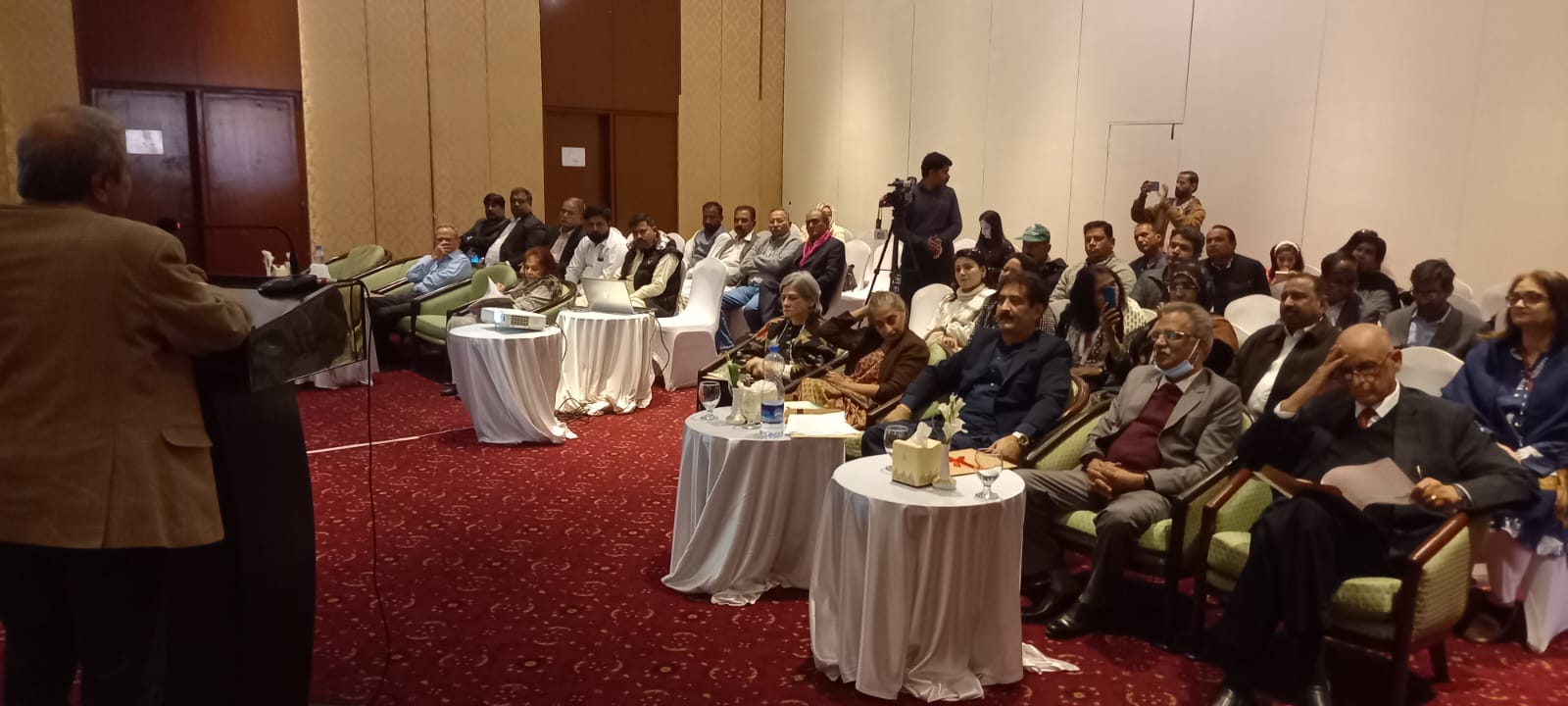‘Political Parties Must Act Decisively To Advance Human Rights’
News Desk
Karachi: Speakers at a seminar emphasized that political parties must invest in efforts to promote social cohesion and address human rights issues faced by marginalized groups.
The Centre for Social Justice (CSJ) organized a seminar titled “Political Parties’ Priorities and Minorities’ rights”.
A report by the CSJ titled “Promises to Keep & Miles to Go” was released at this point, and it examined the promises, actions, and performance of political parties in regard to minorities’ rights during the course of the last three parliamentary tenures.
The study found that PTI fulfilled none out of five promises made in election manifesto 2018, though it made partial progress on two promises. Pakistan Muslim League-N failed to materialize nine out of ten promises and PPP partially implemented one out of eight promises.
According to the study, minority representation, the creation of a statutory minority commission, the criminalization of forced conversions, curriculum reviews, the implementation of job quotas, and the review of discriminatory laws were among the pledges that appeared frequently in parties’ manifestos during the three election years of 2008, 2013, and 2018. The assurances have not been fulfilled, though.
Executive Director Peter Jacob said, “The Center for Social Justice wants to make a positive difference in Pakistan’s complicated political polarisation.
We conducted this study with the purpose to demonstrate to political parties the hollowness of the promises they made in their manifestos for the last elections and to elicit their response.”
He continued, “We want to attract attention to the political leadership’s aim as well as that of the voters, concerned citizens, and the general public to basically try to inject some seriousness into the political process, particularly surrounding the electoral process.”
Mazhar Abbas stated that there is a lack of political will to address minority-related issues due to extremism and intolerance promoted by religious groups.
The minority legislators need to be more proactive in introducing legislation, and CSJ’s report is an effective tool to make political parties accountable.
Justice (R) Kailashnath Kohlisaid that the court needs to play role in preventing corruption as exemplified by the illegal selling of minorities’ properties under the Evacuee Trust Property Board.
It is extremely sad that the orders of the Jillani Judgment regarding job quota, tolerant curricula, minority rights commissions are not implemented as of yet.
The report revealed that the Punjab government during 2008 and 2022 introduced 11 policy actions followed by the federal government with 9 actions, Balochistan with 8, Khyber-Pakhtunkhwa with 7, and Sindh with 6 actions.
It is clear that our administrative structure needs to be thoroughly re-examined because the majority of policy acts lacked a solid legal foundation and an effective execution mechanism.
It stated that due to pressure from religious forces, draught proposals criminalising forced conversions were ignored by national and Sindh assemblies, demonstrating the political parties’ reluctance to act to address pressing concerns faced by minorities and fight anti-minorities propaganda.
Although they have made some effort on adding religious studies as an alternative to Islamiat, textbooks have not yet been created.
It further apprised that the political parties heavily rely on non-legislative means or weak measures, such as; issuing executive notifications instead of passing legislation to introduce affirmative measures, which ultimately weakened the measures themselves.
or instance, a law is yet to be enacted to establish a statutory National Commission for Minorities despite it was promised by PTI and PPP.

Comments are closed.